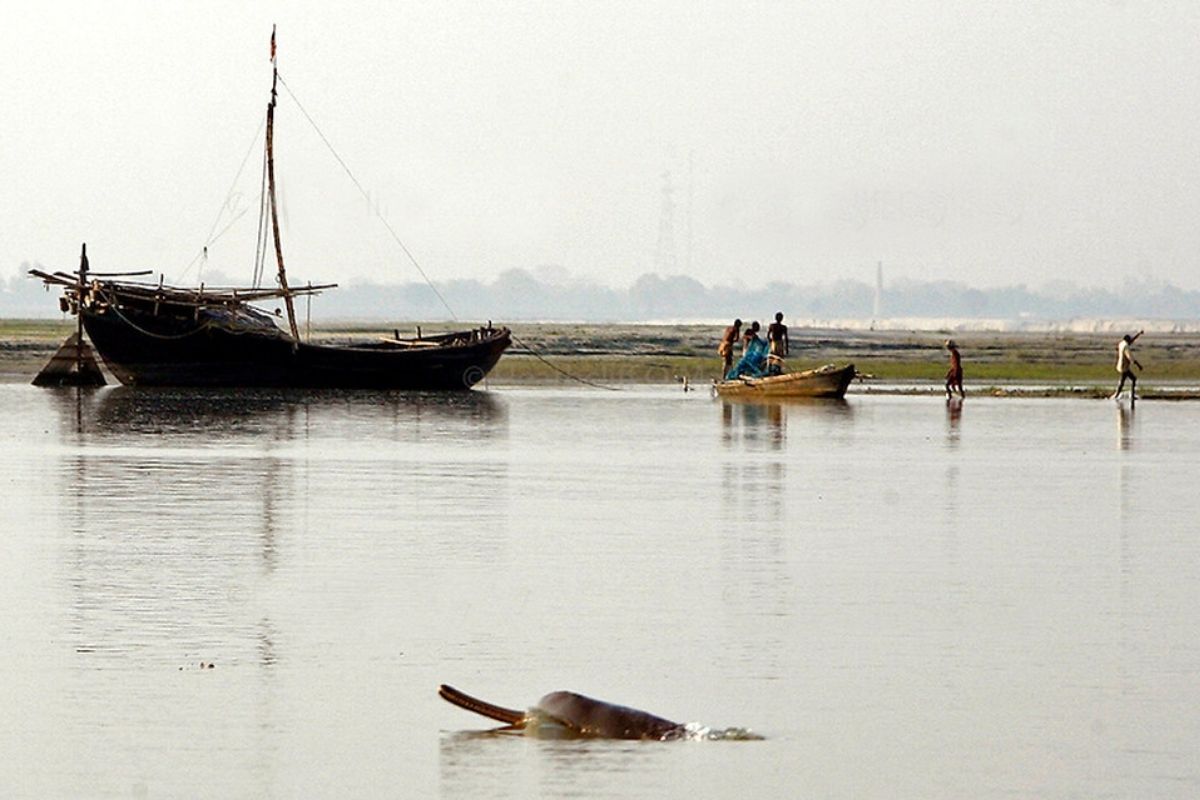The National Dolphin Research Centre (NDRC), inaugurated by Bihar Chief Minister Nitish Kumar on March 4, 2024, remains non-functional, casting a shadow over its objectives to conserve and study the endangered Gangetic river dolphins. Built at a cost of ₹32 lakh on the Ganga riverbank near Patna Law College ghat, the centre hasn’t commenced operations due to a lack of manpower and equipment.
According to Down to Earth, Asia’s first dolphin research facility, the NDRC was envisioned as a hub for studies on freshwater dolphins and other aquatic life, including fish, gharials, otters, migratory birds, and river hydrology. However, nearly eight months after its inauguration, the centre shows little activity. Visitors encounter locked doors, stray animals, and idle security guards, reflecting official apathy.
Dr. R.K. Sinha, architect of the NDRC project and the “Dolphin Man of India,” said, “The NDRC is crucial for conserving Gangetic dolphins, but the lack of operational readiness is disheartening.” “The infrastructure is in place, but we need equipment and skilled personnel to study dolphin behaviour, habitat, and challenges.”
Dr. Sinha proposed the NDRC in 2011, which materialised after years of delay. However, bureaucratic hurdles and a lack of coordination have hampered its functioning.
Bihar, once home to half the global river dolphin population, has seen their habitats deteriorate due to pollution and human activity. Now home to around half of the estimated 3,000 Gangetic dolphins in India. Experts warn the delay in the centre’s operations is a setback for dolphin conservation.
Patna University students and faculty, who anticipated using the facility for research, are frustrated. “We hoped the NDRC would advance our studies, but it’s disappointing to see no progress,” said Dr. G.B. Chand, a zoology professor and NDRC expert committee member. Earlier, the committee organised awareness drives among local communities, but those activities have ceased.
Bihar Forest and Chief Wildlife Warden P.K. Gupta assured the centre would be operational by the end of the financial year. “We’re addressing manpower and equipment needs. We aim to make the NDRC a centre of excellence,” he said. Gupta added the centre would train fishermen in sustainable practices to protect dolphins during fishing.
The NDRC, on a 4,400-square-meter plot within Patna University, offers researchers a vantage point to observe dolphins in their natural habitat. Experts believe its location could facilitate groundbreaking studies on the Gangetic ecosystem.
Support us to keep independent environmental journalism alive in India.
Keep Reading
Watch: Kashmir experiences first snowfall of season after dry spell
Amarnath Yatra: Tackling rising death toll from extreme weather events
Tourists arrival in Kashmir break records, a need to regulate it?
From tourist paradise to waste wasteland: Sindh River Cry for help
Follow Ground Report on X, Instagram and Facebook for environmental and underreported stories from the margins. Give us feedback on our email id greport2018@gmail.com.
Don’t forget to Subscribe to our weekly newsletter, Join our community on WhatsApp, and Follow our YouTube Channel for video stories.






